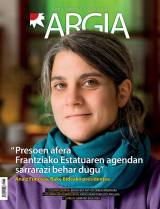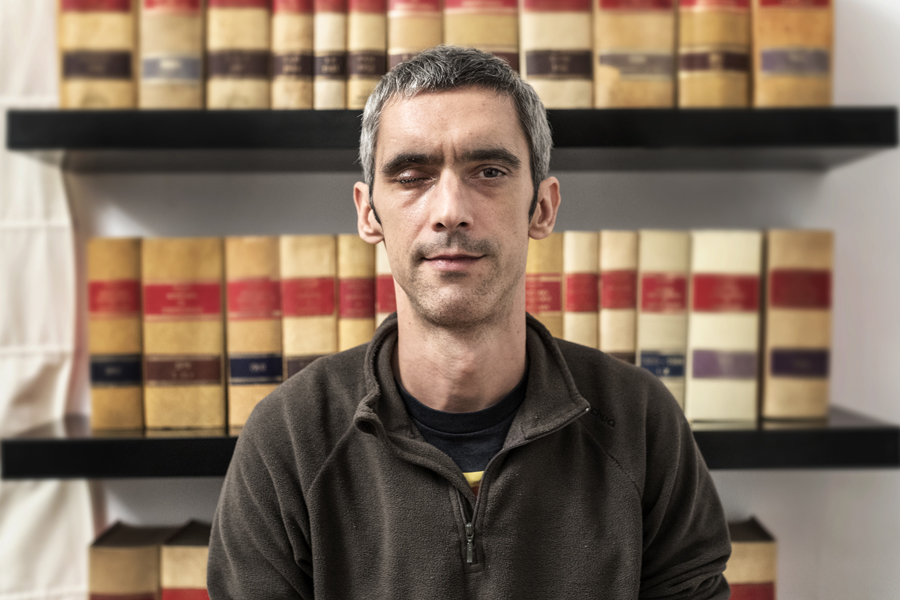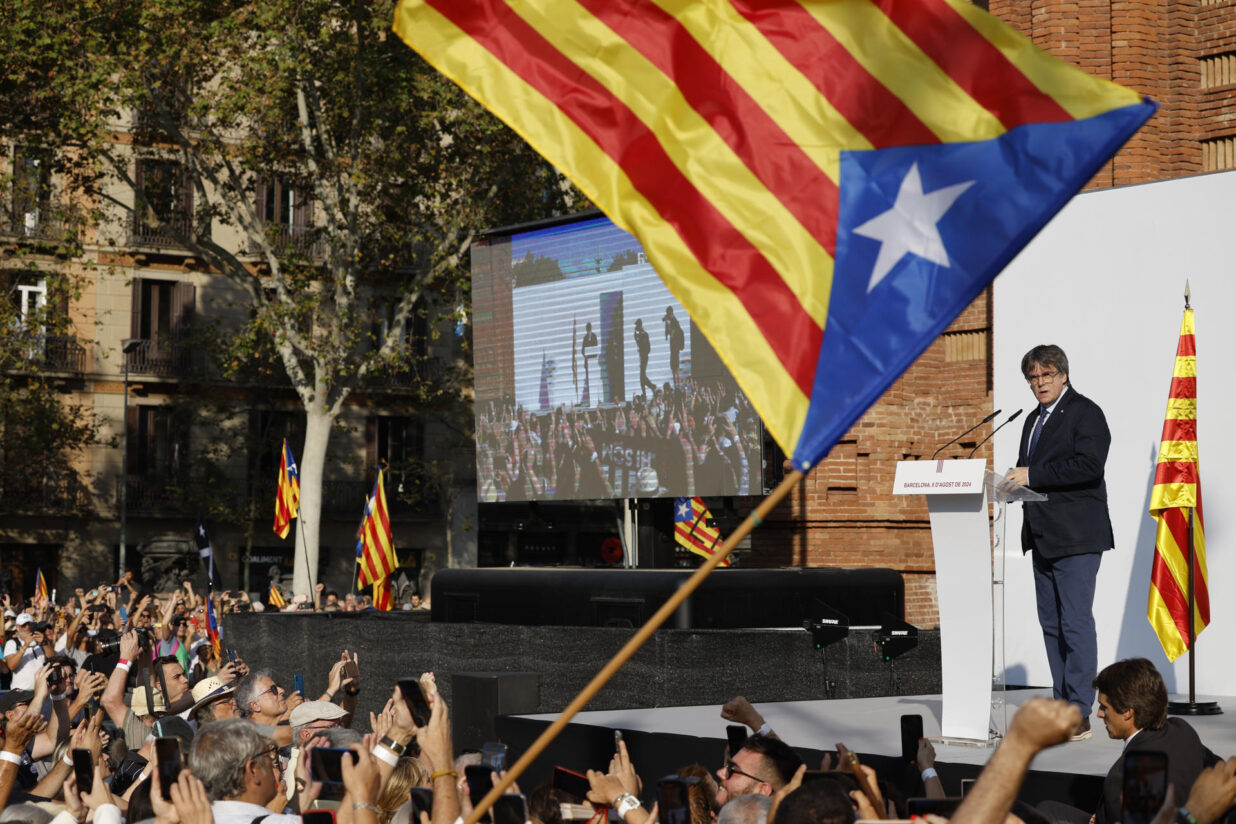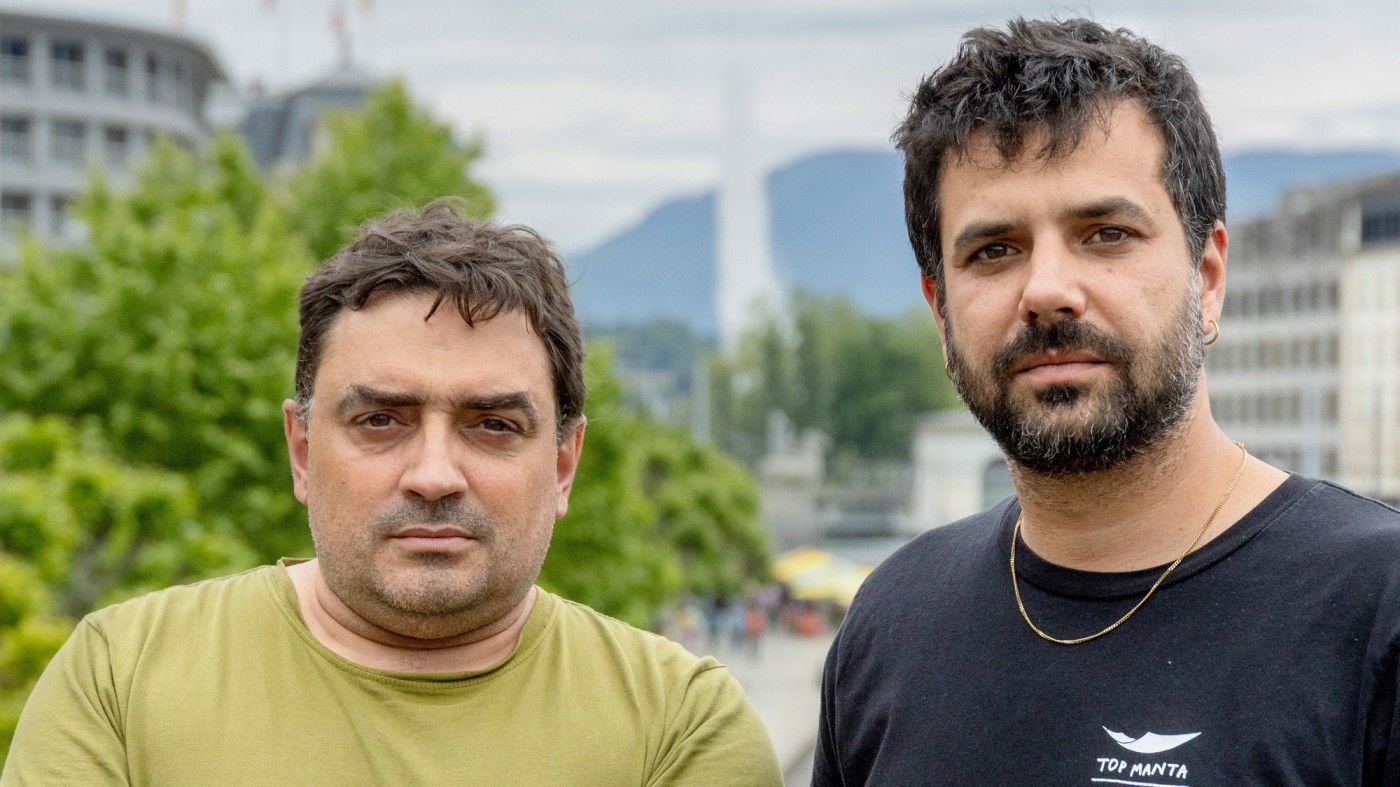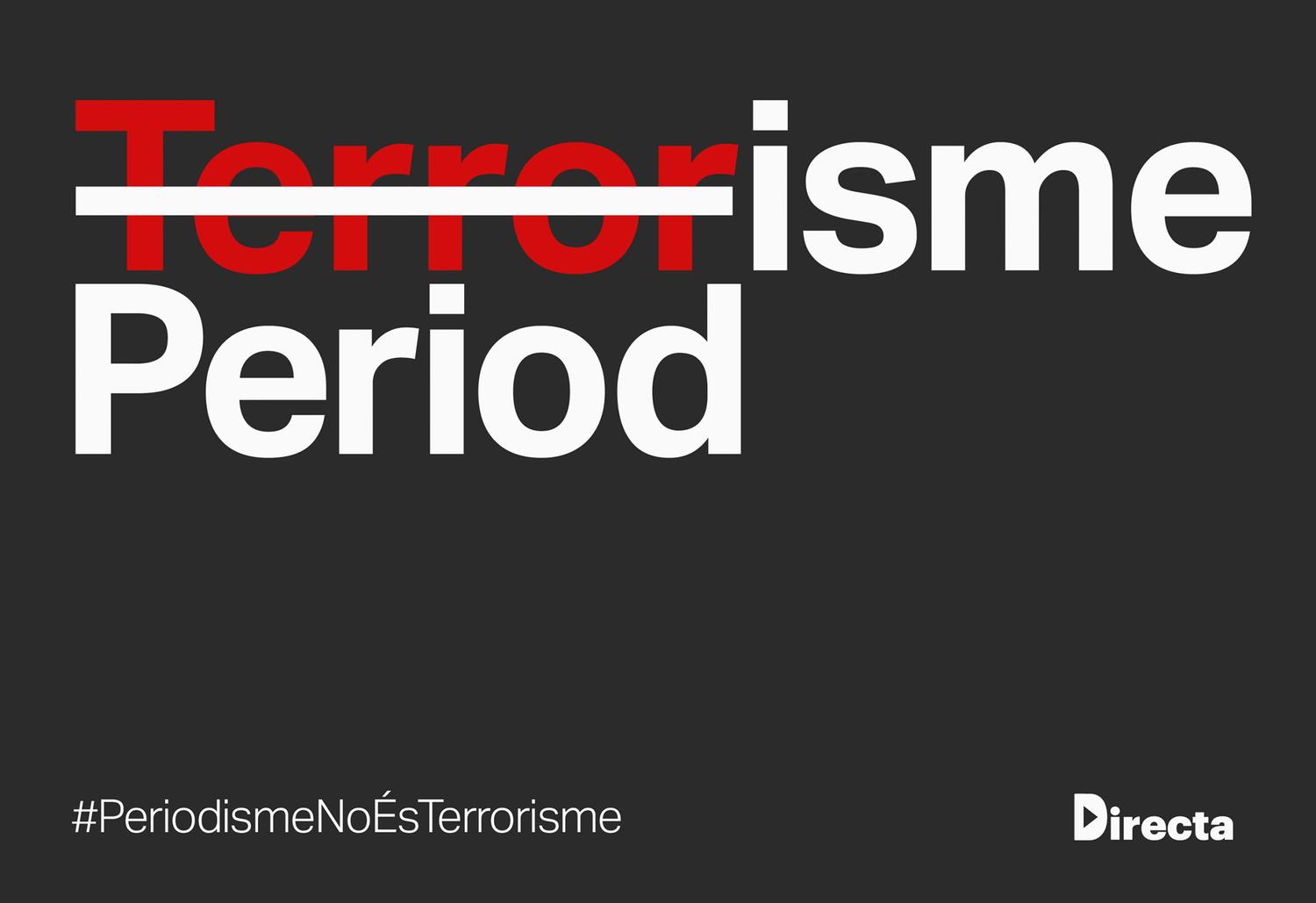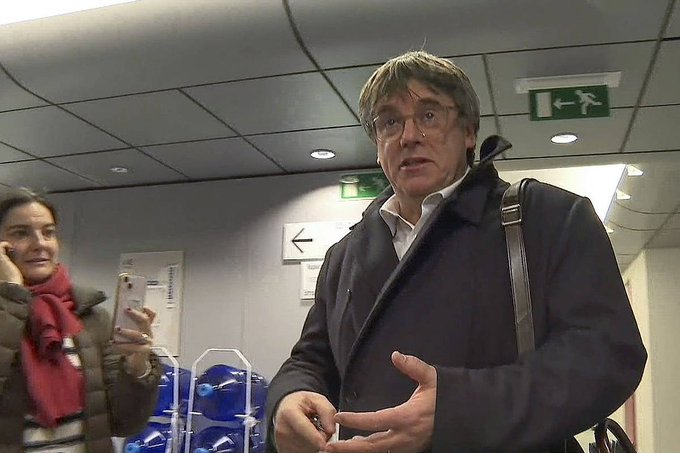Ikurrina on the lenses
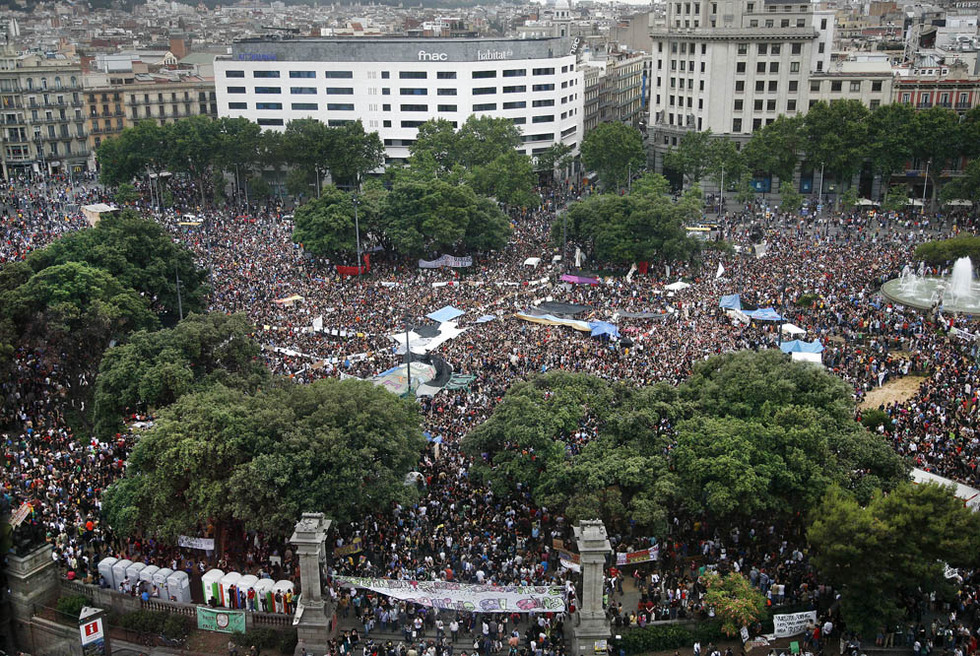
Quantum physics, in addition to its contributions in the field of physics, evidenced a structural relationship between the subject and the object. It evidenced that the subject constructs the object and questioned the Cartesian method, which was the only and absolute approach used to understand the world.
Feminism has long uncovered the bias of our gazes, consciously put us in purple glasses and proposed to look at the world from the power relations that patriarchy creates. Today we know that without purple glasses, the common sense of patriarchy gives name to existence, since there is no reality outside the eyes of the observer. The monitor builds what it looks at. Brown or so.
The Catalan independence process has revolutionized the political table of the state: It has spread illusion, hatred, confusion and fascination among most State and European parties and agents, especially for one reason or another, in political movements or in territories seeking emancipation.
The confusion is evident between the Basque statalist and sovereign left of the state, and I am convinced that this confusion will suspend the possibility that we have been opened up to derail the 78 regime and open the door to a demorphobic centralist reaction.
The origin of this confusion is found in the glasses that use these two policy areas to look and understand the process, specifically in the red or yellow or green and red colors that the crystals of those glasses have, that is, in the presorical position of the subject when looking at the object. What for some, for those of the Spanish left, is a problem, for others, for the Basque sovereigns, is an inescapable condition, and it seems that both will see how they lose their opportunity in the face of the extremes, dazzled by the “magical realism” of each one, and understanding the reasons for the presence of the Catalan bourgeoisie in the process as a problem or an inescapable necessity.
What happened to the participation of 10,000 people in the 2011 Diada and the collection of one and a half million people between 2012?
In recent days the concept of “magical realism” has been widely heard, especially to talk about the revolution dels somriures proclaimed in Catalonia and, above all, to stress the impossibility of this widespread conviction. In Euskal Herria it also seems that magical realism is widespread when it comes to understanding and supporting the process of independence that is taking place in Catalonia. We know that the accuracy of the diagnosis of what happened is the variable that most influences the moment of undertaking. And I think that so far only one element has been used for diagnosis, which is the one that dominates our political structure: nationality.
Does anyone ask why Artur Mas and his party, who in 2002 said “Independence is an obsolete and rusty concept,” defended the Spanish monarchy, championed and put it at the forefront of this process? Has anyone ever wondered what happened between the 2011 Diada, which involved 10,000 people, and the 2012 Diada, which brought together 1.5 million people? Has anyone wondered why the process was about to get to fuck because the Cup didn’t want to name Artur More “President”? And why was the process about to be downloaded because the Cup didn't want to approve budgets that weren't going anywhere? What else does it give? Do we care? Will we ask you?
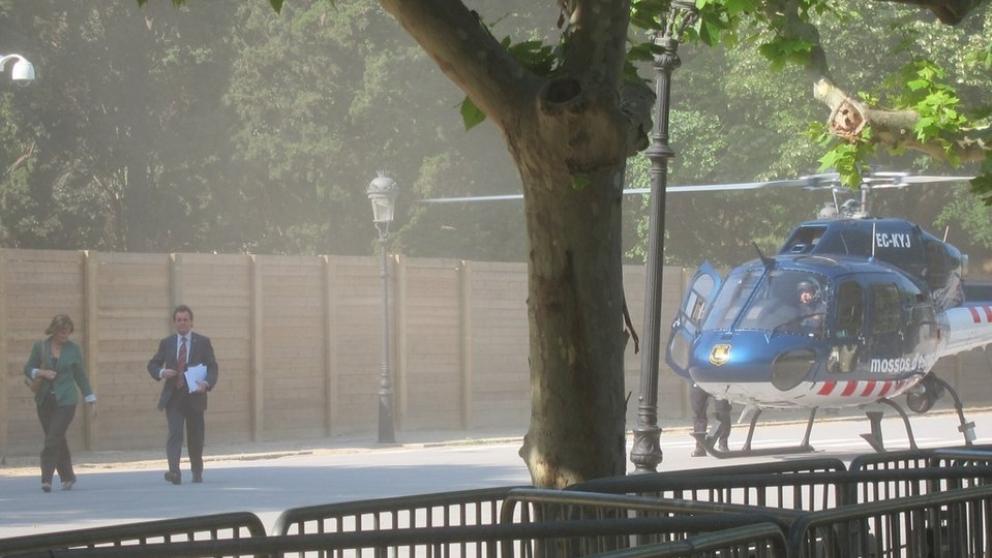
It is time to abandon the magical Basque realism, to remove the colored glasses of the ikurrina and to identify and analyze the material bases of the bowels of this process of independence; it is time to humbly acknowledge that we do not understand it and begin to ask ourselves. Today better than tomorrow.
As explained in the three articles published by CUP militant Josep Manel Busqueta and Pau Llonch in the digital journal Critic, we are in a structural and multidimensional crisis of the capitalist economy. In his words, it is a capitalist crisis that, at least in our geographical area, has no way out of the hand of liberal or social democrat alternatives.
In recent years, the political consequences of this economic crisis have been reflected, both in Europe and in the United States: the elimination of the existing social pact, the brutal deployment of poverty through austerity policies and the disappearance of state sovereignty – the clearest example being Greece. The consequences of all this are the terrible upheavals of the far-right, Trump, Le Pen, Brexit, the racist government of Poland, etc. The worst thing is that all this has been the response of the working class to the crisis.
In Catalonia, the impact of the economic crisis was, and is, very severe, due to factors such as its deindustrialized productive structure, its peripheral geographic location, its precarious attachment to the Spanish State, and the neoliberal and austerity policies imposed by its authorities. It is noteworthy the orientation of the decisions taken by the CIU Government after winning the 2010 elections to respond to the crisis. It cut down the main pillars of the welfare state, such as education, health, salaries of officials, all while uncovering the corruption of the party: The Palau case and the 3 per cent issue are some of the cases.

For anyone familiar with Catalonia and especially Barcelona, it will not be surprising to imagine the size of the cycle of struggle that caused these kinds of cuts, to which the M15 movement added to the struggles generated by the workers of these sectors: strikes by public employees, actions of medical disobedience in waiting rooms, strikes by education workers and violent protests. The movement of 15 May is also an essential milestone in understanding the current process: it endured for months in the plazas, accumulated forces and showed its teeth to the political-economic regime, in the case of Catalonia, executing the aturem the parlament in massive and radical action, blocking the parliamentary session that had to take on the brutal cutbacks and forcing Mas to enter the helicopter. All of this turned the economic crisis it was managing for the benefit of the economic elites into a political crisis of the powerful, and questioned the stable dynamic of the regeneration of capitalist social relations in Catalonia.
The political legitimacy needed for the survival of the relations of domination is over. The new discourses, promises and frameworks became essential for the continuity of the power relations they maintained until then. Among the clash against the Spaniards that would suppose confronting the national domination and the clash between the classes provoked by the capitalist crisis, the structures of Catalan power, especially the policies, decided to: Independence. Or, the process of independence. The process, above all, known as Processisme. This has enabled the PDeCAT – and by imposing on Masi JxSI – to maintain in the institutions a representation and strength that it did not have in society. Is it now understood what happened between the 2011 and 2012 Diada? Now is it understood why the Cup did not appoint Mas as president? Is it now understood why the Cup did not approve the budgets in the first option? Is the Cup's contribution to the process now understood?
This country ' s process of independence, which was around 10 per cent of independence 15 years ago, is closely linked to the contradictions generated by the capitalist crisis, as well as to the solutions offered to it.
Although the followers of the Spanish left do not want to see it and the Basque sovereigns consider it a marginal reason, the process of independence of this country, which 15 years ago amounted to around 10% of independence, is closely linked to the contradictions generated by the capitalist crisis and the solutions offered to it. And not in an imaginary future, but here and now, the two general strikes that have been carried out in favor of the process (and road cuts…), As a sign of the prominence they have taken CNT, CGT and CDR. In any case, as demonstrated by the class composition of the new Spanish hobby that has appeared in recent months, the leadership maintained by the PDeCAT through JxSí has put a stop to the growth of independentism, which has slowed down much of the working class with Spanish identity abroad, and has made the difficulty of independence structural to exceed 48%, changing the red thread of Barcelona.
With all this, we will draw the lessons and seize the opportunity that has been presented to our minds. Let us stop making gestures of solidarity and open a second against the regime. The time has come for us to exercise political antagonism, to realize the independence of the abstraction of “pure indicators” – a significant void – in material realities. We develop, deepen and overcome the discourses that are based on democracy and nationality and begin to build spaces of sovereignty, material free spaces, practical responses to the dominations that hit us daily. Crystallize the idea of sovereignty in social conflicts and realize here and now the needs and desires of the social majority.
As David Fernández says, there is no possibility of making the road from democracy to freedom in the day and here, then, let us begin to explore the road from freedom to democracy. Because, as Catalonia has taught us, the national and social question are not two sides of the same coin, but the same side of the same coin, of the only one we have.
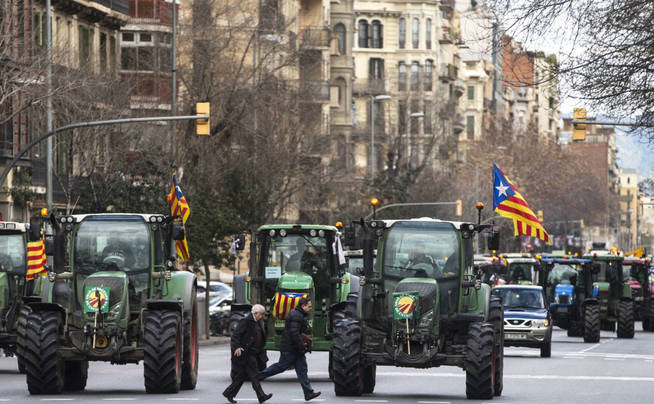
Lau agenteak lesio-delituengatik ikertzen ari dira eta horrek galarazten du 2024ko amnistia aplikatzea. Polizia horietako batek, ustez, gomazko bala batekin begi bat zartatu zion Roger Español kataluniarrari.
Walk from a train station, two friends and a hug. This hug will be frozen until the next meeting. I'll come home, he'll stay there. There, too, will be free the painful feeling that injustice wants us to catch. Jesús Rodríguez (Santa Coloma de Gramenet, 1974) is a journalist,... [+]







